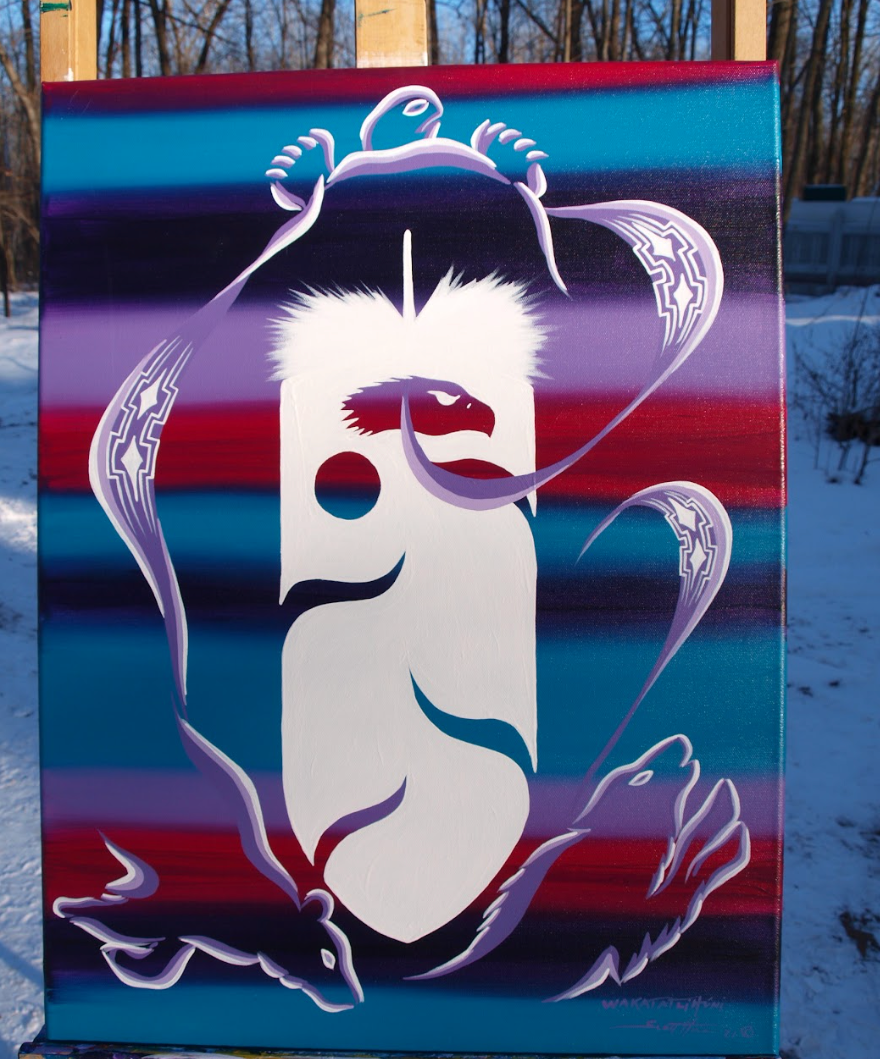New Technology Stops Fraudulent Native Art

The Southwestern Association for Indian Arts (SWAIA) and Imprint are partnering to prevent counterfeit Native American art from being produced and sold. The companies are utilizing revolutionary technology to ensure the art individuals sell comes from Indigenous artists.
Creating Digital Titles for Artwork
The SWAIA and Imprint supplied about 800 Native American and Indigenous artists with certified Imprint digital titles to apply to their artwork. By providing these digital titles, Native artists can create and officially register a certificate of authenticity for their work.
Then, the certificate will be stored on a secure blockchain database or a digital ledger of all art transactions. These digital titles ensure that when people buy Indigenous art, they can 100% know they’re purchasing authentic art from Native artists.
How this Technology Works
Here’s how it works. When a piece of artwork is sold, the Imprint title associated with the piece and the certificate transfer to the buyer. Additionally, the buyer’s transaction information (date of sale, location of sale, value of the art) is stored on the digital file.
This information is created and stored instantaneously, allowing the sale to be traced back to when the piece of art was created and its initial sale.
Imprint’s Take on the Partnership
The new technology presents a lot of reassurance for Native American artists, and the co-founder of Imprint, Ruth-Ann Thorn, is excited about tackling such a prevalent issue.
Thorn states that the new anti-fraud technology allows Imprint and SWAIA to “tackle an age-old issue of fraud and exploitation committed against Native American culture.”
By giving artists “a simple, easy-to-use digital tool,” Thorn says it will help eliminate counterfeit work claiming to be from Native American artists. In turn, Thorn explains it “will make their [Native artists’] authentic work that much more valuable.”
What is Imprint?
Imprint is the first secure global art registry, aiming to empower artists and buyers by preventing art fraud. Art fraud is common in the art world, whether among Native American or non-Native artists.
Imprint’s priority is to provide secure art sales and accurate ownership records throughout time, so a person can see precisely who owned the piece before them.
Further, Imprint’s digital platform and digital blockchain create a new standard for art authenticity, essentially ensuring a piece of art isn’t fraudulent.
What is SWAIA?
SWAIA is a non-profit organization supporting Native American art and culture. To do so, the non-profit hosts and promotes the Sante Fe Indian Market, the most prestigious Indian art event in the world since 1922.
Further, SWAIA creates programs and hosts events promoting, supporting, and honoring Native American artists throughout the year.
Overall, SWAIA’s work creates both economic and cultural opportunities for Native American artists in the United States.
Laws in Place to Prevent Native American Art Fraud
Although counterfeit Native American art is common, laws and policies are in place to prevent this art fraud.
For example, the Indian Arts and Crafts Act of 1990 issues fines and prison time for anyone who counterfeits Native American art by selling or presenting work as Indigenous.
This Act intends to protect Native American artists by issuing punishments of up to $1 million in fines and/or 5 years in prison.
The Need for Art Authentication
The need for an anti-fraud authentication process like the one invented by Imprint is incredibly demanding.
In 2021, of an estimated $1 billion in Native art sales, about 80% was believed to come from counterfeit goods, including paintings, sculptures, jewelry, ceramics, and textiles.
Additionally, several federal investigations have exposed fraudulent Native art sales within the United States. For example, in 2015, the FBI seized Filipino-made jewelry claiming to be authentic Native American art with a retail value of $35 million.
When fake Indigenous art is sold, it drives down the value of genuine Native art, making it more challenging for Indigenous artists to make a living.
The Impact on Native American Artists and Creatives
Imprint and SWAIA’s partnership prevents fakes from being sold, which ensures Native American art is legitimate, the artwork retains (or increases) in value, and Indigenous artists are properly acknowledged.
SWAIA Executive Director Kimberly Peone says the non-profit “immediately recognized the opportunity as one that will help combat theft and counterfeit within the Native American art world.”
In the future, SWAIA and Imprint hope to include even more Native American artists in the blockchain database, eventually eliminating any fraudulent Indigenous art from being produced and sold.

